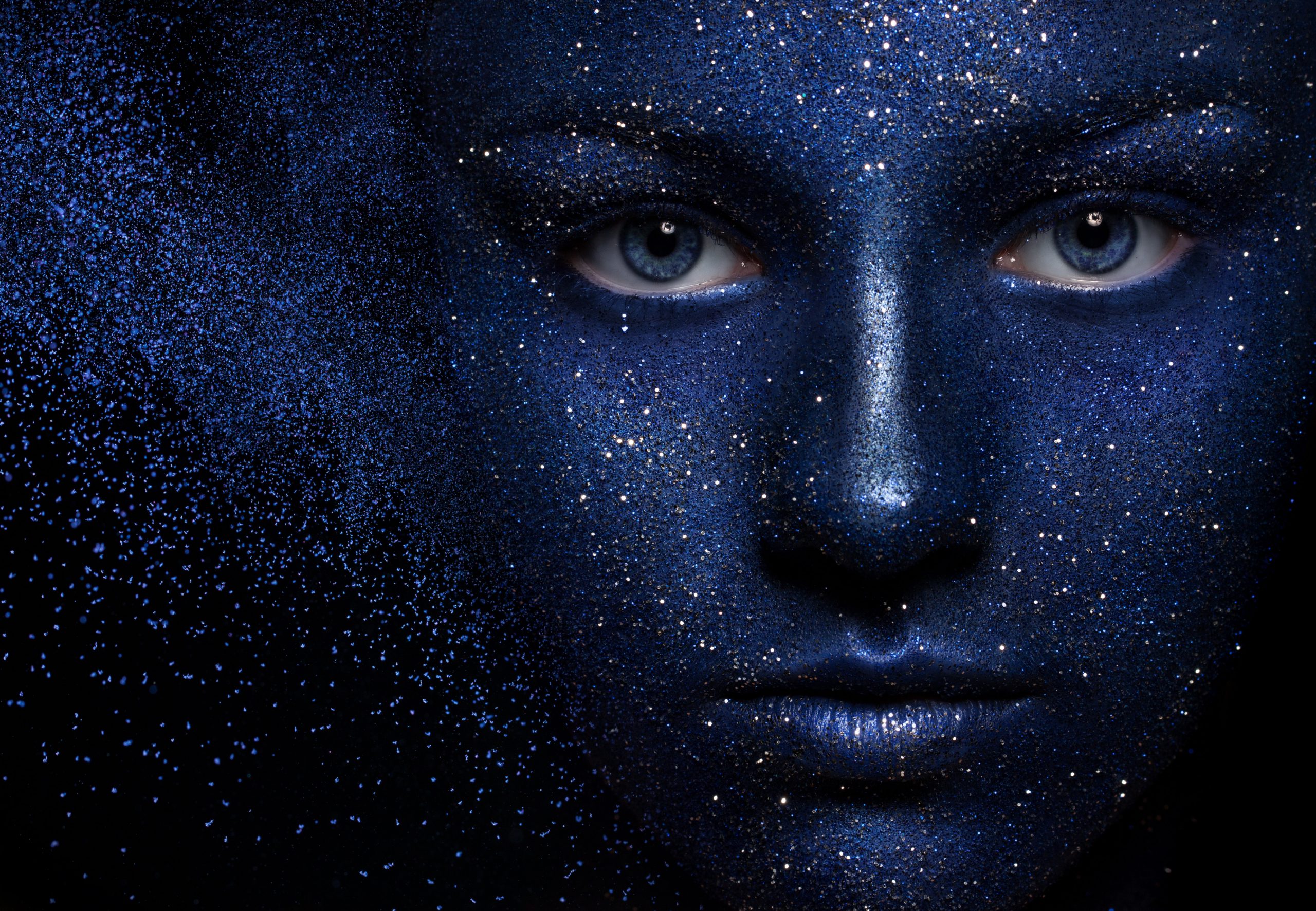
Emerald Fennell’s perverse dark comedy “Saltburn” stars Barry Keoghan as an aspirational young man named Oliver Quick, who befriends the charming and incredibly rich Felix Catton (Jacob Elordi) at Oxford University. When Felix invites him to spend the summer at Saltburn, his family’s sprawling country estate, Oliver navigates–and manipulates–his way into the hearts of Felix’s insular and eccentric extended family.
Best known for her breakout film “Promising Young Woman,” in which she took home the Best Original Screenplay Oscar and became the first British woman nominated for Best Director at the Academy Awards, Fennell began her career acting in films and television shows like “Vita and Virginia” and “Call the Midwife.” She later earned an Emmy nomination for her work on the second season of the BBC’s sapphic spy thriller “Killing Eve” and another for her performance as Camilla Parker-Bowles in the Netflix dramatic series “The Crown.” Like her first feature film, “Saltburn” stylishly pushes against boundaries, provocating audiences with its visceral imagery and mordant tone.
RogerEbert.com spoke to Fennell at the Chicago International Film Festival about evoking the intense emotions of first love, evoking the deeply uncool mid-2000s, and the art of building out an ensemble cast.
You’ve said that one inspiration for this film is the kind of intense romantic feelings that you have in your teens and early twenties. I embarrassingly have a diary from my first romance. And it is hard to read. How did you tap back into those feelings? Because they can be really intense.
I, likewise, am somebody who also has a diary that I physically cannot look at. The sheer amount of poetry, right?
I chronicled the whole year. Why’d I do that?
And you could go back? Because I literally could do a page at a time and then wanted to lie down and just die. I think there is a moment in your life where you’re just living in a completely physical place. You’re completely in your body in a way that I don’t know, I suppose the years pass, and you just become more immune to it, maybe. But I guess I always had that Gothic sensibility. All of the movies I grew up loving had that tragic, romantic, or kind of violent romance. I think of “Romeo + Juliet.” I saw that 11 times in the cinema until my mother had to put a stop to it.
The Leo version?
Of course. And, you know, all of the kinds of Brontës and that kind of tragic gothic fiction. Or something like “Atonement.” Those country house kind of movies. “The Remains of the Day.” I think that has always been my sensibility. And I think a lot of young people feel the same.
The ’90s was a great time for those kinds of movies.
It was a great time. “Cruel Intentions,” please. It’s ourselves at our most human. The wanting and the not having and how it drives us crazy. I do think as adults, we’re still there. The internet’s made it a lot easier for us to look and watch and want and be full of self-loathing.

This is set in 2006/2007, and that was when I was in college, and I felt you captured the time so accurately. I hate to think that I went to college 20 years ago, but I did.
Yeah. Same.
And that’s horrifying. So, it is a period, but it’s a period that people don’t think of as a period yet. I’d love to hear how you recreated that and what you wanted to evoke about the era.
It’s sort of devastating, isn’t it?
Yeah.
Firstly, from the very beginning, I knew I was making a Gothic country house movie, so I knew that the structure had to be a narrator taking us back over a time that changed their life forever because the past is another country, they do things differently there. It’s that “The Go-Between” structure. So it needed to be a period of time that was long enough that we knew somebody had not got over it, but not so long that it was an old man looking back over it. So it felt right. And then also, because we’re dealing with a kind of beauty—a lot of this movie is preoccupied with beauty and our relationship to it—what I really didn’t want was for it to feel like a photo shoot. If you go earlier than 2006 or 2007, and you even go to Y2K, it’s already back. It’s already cool. It’s already beautiful. Or if you set it now, everyone looks gorgeous. Fifteen years ago, wherever you are in time is lame. So there’s something about this movie that you have to acknowledge that these people are human and that even though they live in this enormous house and that they go to Oxford and all these timeless places, they still are human and fixed in a time that is not that cool. So we spent a lot of time looking at things like Livestrong bracelets.
The Livestrong bracelet made me laugh so hard. I still have mine in a box somewhere.
Right? We looked at the cringiest tattoos, like the Carpe Diem tat. The eyebrow piercing. The long sideburns. The bootcut jeans. The patchy fake tan for the girls. The bad extensions. Too much eye makeup. Too many accessories. That kind of stuff. What it does is really remind us all that you can be the coolest, most beautiful person in the world and still, you know, in 15 years’ time, you’re not going to look great. And it’s sort of deeply humanizing. There was also something very fun and wicked about making a period drama set in the 2000s, the least cool of all the periods.
It was like looking at college party photos. I was deeply embarrassed.
For all of our references, of course, we were looking at magazines and all that kind of stuff, but really we were just mining our own Facebook pages. They were, I’m sorry to say, they have not stood the test of time.

Obviously, this is such a deep ensemble. Did you start with casting one character and build from there?
Oliver. I had to start with Oliver. I was just obsessed with Barry Keoghan, having seen “The Killing of a Sacred Deer. “He’s such a compelling performer. I remember watching that movie, and it was one of those movies I watched like twice, immediately, one day after the other, because I just couldn’t get my head around how fascinating and beautiful and savage and hilarious it was. I loved Barry. I don’t like to audition people because I just don’t think it’s that useful unless I’ve never seen them do anything before unless they’re new. So I asked if he’d ever done an audition in an English accent. They sent me a tape that he’d done for something else and it was the same feeling I got. I just can’t take my eyes off him. I cannot think of a performer who is more compelling than this. So I met with him, and I loved him. He’s very similar to me, Barry, in the sense that, like, we’re we’re very different. We’re kind of like chalk and cheese in lots of ways. But when it comes to going there. When it comes to dedication, I think we’re kind of always completely there to push each other really, really hard. And that’s always just the most exciting thing.
So then, once I had him, it was just a matter of finding everyone else. Obviously, Rosamund Pike and Richard E. Grant were, without a shadow of a doubt, the only people who could ever do those parts. With Rosamund, I just begged her because I love her so much. I think she’s the greatest person in the world. Kharmel Cochrane, the incredible casting director, found Archie Madekwe and Alison Oliver, who play Farleigh and Venetia. They did auditions. They were just two of the best auditions I’ve ever seen in my life. They’re just so exceptional. I think it’s really important that you don’t want your cost to be so stacked that it’s kind of distracting. You want people who are people who we’re not familiar with yet, and honestly, those two are just insanely talented.
Then I met Jacob. I had never seen “Euphoria.” I met him, and I just immediately thought he was such a clever, perceptive, funny, dry person. He came in and auditioned, and he just did the most f**king brilliant audition. But it wasn’t just that it was a great performance. It was an extraordinarily deft piece of observational comedy. It was exactly what I needed because lots of people came in and did amazing auditions that were just brilliant, but they didn’t have the thing that I was looking for with Felix. Which was that he was kind of a dope. He’s the nice guy who actually does something quite cruel in every single scene, kind of unthinkingly.
That’s where we’re like, he’s such a nice guy, so where are the limits of our audience? What are we willing to turn a blind eye to for beauty? That’s always the thing you’re looking for. What would we be willing to not mind if they did it? Elsbeth Catton, Rosamund, what could she ever say to us to make us not like, lie down at her feet? Nothing. We’re in her hands. That had to be a huge part of this. This is about charm and how it’s weaponized and power, and it was very important that nobody, none of us in the audience, would say no to any of these people. We wouldn’t. So that was casting. It’s charisma casting.

I wanted to ask about Duncan, the butler. He’s so creepy. Can you talk a bit about his casting and what kind of direction you gave him?
So Paul Rhys is one of the best actors in England. He’s an incredible, highly regarded theater actor. And he is somebody who, Rosamund, when I first spoke to her, she said, you should meet with Paul for this because he’s like nobody else. And he is exceptional. I think the thing about the conversations I had with Paul, and the reason I loved him so much, was I said to him, you know, Duncan is the house. Most people were like, oh, yes, you mean metaphorically. But Paul just said, Yeah. And he knew that I meant it, literally. That Duncan could be 1000 years old and in the house. He’s the person who serves the house, not the master. So he’s part of it. Paul was able to humanize Duncan to such an extent, to work within the confines of that job in which it is necessary to be completely restrained. I think the moment that Duncan breaks briefly in the movie is one of the most moving. Paul’s also going to be in “Napoleon” later this year as well. He’s a remarkable, remarkable actor.
You mentioned how Jacob brought a bit of that comedy to his audition, and there’s definitely a tone in this movie that is a dark, mordant comedic tone. I’d love to know how you worked with the actors to keep that tone consistent.
To me, it’s a dark comedy.
It felt like Joseph Losey to me.
My favorite, of course. “The Servant” and “The Go-Between” are two of my favorite films of all time. Absolutely. It’s a comedy of manners. It’s a comedy of ourselves. So much of the casting and then the assembling of a team, that’s how you establish the tone. And the script, too. A huge thing for me is that I try to be quite sparse when it comes to stage directions in a script because I know that people secretly don’t read them, but also the main thing I want are details. Telling details that then make people kind of understand that this thing kind of maybe isn’t what it seems. And so, tonally, you’re always kind of operating on two levels. And in a funny way, you’re operating on the movie that it’s saying it is, which is a classic country house Merchant Ivory Gothic movie, and then the movie that it really is, which is just something about sex and desire and our very modern obsession with things that aren’t things that will never love us back, I guess.
It’s such a strikingly visual movie with the worlds you created in Oxford and in Saltburn. Did you start with sort of a mood board?
Totally. When I send the script to people, certainly once the first few people have read it, it always comes with a playlist and a mood board. Because that’s how I work. It was the same with “Promising Young Woman,” it’s always like, I know what this seems like it’s going to be, but it shouldn’t feel that way. I know this should look in many ways and feel like an old-fashioned movie, but it needs to smell like Hugo Boss. It needs to always have the things that are sort of grubby and slightly wrong.
Can you share what was on the playlist?
On the playlist, it tends to be that there are songs that are kind of in the movie always. So Flo Rida, you’ve got to have “Low” by Flo Rida. But then “Zadok the Priest,” that opening piece of music is more famous in England, Handel and it’s the coronation song. Everything in that opening scene was written and timed out to “Zadok the Priest.” Then, it was in Barry’s ear during that long opening shot. We all had it. So Anthony Willis’s incredible score was born from, I just said, “We need ‘Zadok’ to be the kind of jumping-off point for this because this is a movie about a coronation.”
That stuff is crucial to me. I can’t think of any other way. Also, it’s visual already for me, so when I spoke to cinematographer Linus Sandgren, it was sharing all of the different things. For me, it was a lot of paws, taste buds, armpit hair, as much as it was mahogany and Caravaggio and Joshua Reynolds. We ended up with 1.33 for a lot of practical reasons, but mostly because all of our references were portraits or landscapes. The way the house is shaped and the way that those kinds of formal compositions work made it all much easier.
But, yes, the playlist was endless. I mean, endless 2006.
Yeah, it’s a good time for music. And also a bad time for music.
It was the best of times; it was the worst of times. [laughs]
“Saltburn” is now playing in theaters.




